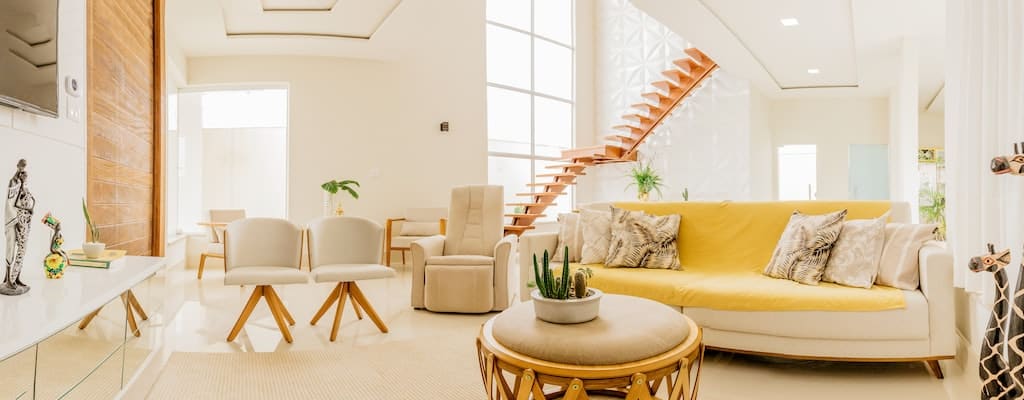have a seat: Idiom Meaning and Origin
What does ‘have a seat’ mean?
The idiom "have a seat" means to take a chair or place to sit down, often used as an invitation or suggestion to someone.

Idiom Explorer
The idiom "kick one's heels" means to wait idly or impatiently for something or someone without any purpose or result.
The idiom "in the hot seat" means to be in a difficult or uncomfortable position, often under scrutiny or facing intense questioning.
The idiom "hold one's peace" means to remain silent or refrain from speaking, especially when it is important or expected to do so.
The idiom "here you are" is used to hand something over to someone or to guide someone to a specific location.
The idiom "have the floor" means to have the right or opportunity to speak or to be in control of a situation or discussion.
The idiom "have several seats" is a figurative expression that is used to tell someone to calm down, be quiet, or stop acting foolishly. It implies that the person should take a step back and think before speaking or acting. It is a dismissive and slightly rude way of asking someone to stop their behavior.
The idiom "have one's way" means to get what one wants or to have things done according to one's own preference, often by exerting control or influence over others.
The idiom "have it your way" means to allow someone to do or have something exactly as they want, without any compromises or objections from others.
The idiom "have a word" means to speak privately with someone in order to express a concern, give a warning, or have a serious conversation.
The idiom "have a say" means to have the opportunity to express one's opinion and contribute to a decision-making process.
The Unspoken Invitation Moniker
The idiom "have a seat" is a polite and welcoming phrase commonly used in English-speaking countries to invite someone to sit down. It is often used in formal or professional settings, such as meetings, interviews, or social gatherings. The origins of this idiom can be traced back to the basic human need for rest and relaxation, as well as the social conventions of hospitality and courtesy.
The phrase "have a seat" is a shortened version of the longer expression "please have a seat" or "please take a seat." By using the possessive pronoun "have," the phrase implies an invitation or permission for the listener to take ownership of the seat being offered. In this context, the word "seat" refers to a chair or any other piece of furniture designed for sitting. This idiom is often used figuratively to suggest settling in or making oneself comfortable in a given situation.
While the exact origins of the idiom "have a seat" are unknown, it has been in use since at least the 19th century. In social gatherings and formal occasions, hosts historically provided guests with seats as a sign of hospitality and to ensure their comfort. The phrase "have a seat" is a direct and straightforward way to communicate this invitation, indicating a desire to make the individual feel welcome and at ease.
As with many idiomatic expressions, the meaning of "have a seat" extends beyond its literal interpretation. While the phrase invites physical sitting, it also carries an implied message of being included, accepted, or invited to participate in a particular event or conversation. Offering someone a seat can be seen as a gesture of inclusion and acknowledgement, signifying that their presence is valued.
Another idiom related to "have a seat" is "have several seats." This phrase is used informally to tell someone to sit down and be quiet. While "have a seat" is a polite invitation to sit, "have several seats" is a way of sarcastically suggesting that someone needs to calm down, stop talking, or stop behaving in a certain way. It implies a need for the person to relax and collect themselves.
The idiom "assume the position" is also related to the concept of sitting. It is often used in a professional or instructional context to mean preparing or getting ready for a specific task or activity. While "have a seat" is an invitation to sit, "assume the position" is more of a directive to take a specific posture or stance, typically in preparation for an action or task.
Additionally, the idiom "give someone the chair" is a more literal phrase related to sitting. It is associated with the act of executing someone by electrocution in an electric chair. While this phrase may not be commonly used in everyday conversation, it serves as a stark reminder of the power of words and the potential for dark humor or ironic language within idiomatic expressions.
Lastly, the idiom "box seat" refers to a prime or advantageous position or situation. It comes from the idea of sitting in a box seat, which are traditionally considered the best seats in a theater or sporting event. This idiom is often used to convey the idea of being in a favorable or privileged position, whether in a literal or figurative sense.
The idiom "have a seat" is a polite and welcoming invitation to sit down. Its origins stem from the social conventions of hospitality and respect. Beyond its literal meaning, the phrase also carries a message of inclusion and acknowledgement. Other idioms related to sitting, such as "have several seats," "assume the position," "give someone the chair," and "box seat," offer additional nuances and perspectives to the concept of sitting in different contexts. These idioms reflect the cultural emphasis on politeness and etiquette, and they serve as a way to make individuals feel welcome and comfortable in various settings.
Example usage
Examples of how the idiom "have a seat" can be used in a sentence:
- "Please come in and have a seat in the waiting room."
- "The teacher asked the students to have a seat at their desks."
- "The boss told the employees to have a seat and listen to the presentation."
More "Furniture" idioms



